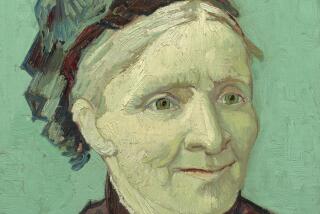Death of a poet
Lawrence Ferlinghetti began his “An Elegy on the Death of Kenneth Patchen” with these memorable lines:
A poet is born
A poet dies
And all that lies between
is us
and the world
Something important does go out of the world when a great poet dies, as it did this week when Andrei Voznesensky passed away in Moscow at the age of 77. He was a virtual recluse in his last few years, suffering through strokes and an unspecified but debilitating illness.
Voznesensky was a leading figure among the shestidesyatniki, the “‘60s Generation” of immensely inventive and courageous poets, writers and artists who came to prominence in the Soviet Union following the death of Josef Stalin. They included, among others, the poets Yevgeny Yevtushenko, Bulat Okudzhava, Bella Akhmadulina, Robert Rozhdestvensky and Boris Slutsky and the remarkable novelist Vasili Aksyonov. Joseph Brodsky, probably the greatest Russian poet of the past half a century, was their contemporary, but early arrest and exile to the West — and an indomitable individualism — made his career something apart from theirs.
Putting aside for a second the question of these writers’ significance to Russian culture and letters, our duty to memory impels us to recall the part these artists — and Voznesensky in particular — played in reawakening Western poets to the possibilities of a popular and politically engaged poetry many had come to think impossible, or even to mistrust. The prevailing consensus here as the 1960s began was W.H. Auden’s dictum: “Poetry makes nothing happen.”
As with the poetry of the Pole Czeslaw Milosz, — like Brodsky a Nobel laureate — the forthright stands Voznesensky, Yevtushenko and their contemporaries took against Stalinism and the old darkness of Russian anti-Semitism proposed an electrifying alternative. So too their embrace of public performances —Voznesensky’s readings were in every sense a performance — which in the 1960s filled sports stadiums around Moscow.
Voznesensky had a particular fondness for California and found kindred spirits in the Beat writers, whose bohemian spirit enthralled him and whose readings set to jazz fascinated him. Ferlinghetti’s San Francisco-based City Lights Press published an early collection, “Red Cats,” that included Voznesensky’s work. Voznesensky wrote a book-length poem, “Story Under Full Sail,” about the doomed romance between the 18th century Russian explorer Nikolai Rezanov and the daughter of a Spanish official in Old California. He later used their story as the libretto for a hugely successful rock opera, “Juno and Avos,” which remains in production three decades after its premiere.
We spent several evenings together in a typically Russian haze of tobacco smoke and alcohol. As a 14-year-old prodigy, he had written to Boris Pasternak, who became his mentor, and Voznesensky described the Sunday afternoons they spent together walking and discussing verse. Once he recited for me a poem, “Second Dedication,” from 1963. It begins: “Beneath the booming bells, / Moscow is seething like a brew” and ends “My word condemns you, / may shame be yours, / shame / and / damnation too!” I responded with a poem Archibald MacLeish wrote about McCarthyism, and he had me recite the opening over so he could copy it down: “God help that country where informers thrive / Where slander flourishes and lies contrive.”
At the beginning of his career, Pasternak famously wrote Voznesensky: “Your entrance into literature was swift and turbulent. I am glad I’ve lived to see it.” This week, in a condolence telegram to the poet’s widow, Zoya, Vladimir Putin wrote, “His poetry and prose became a hymn to freedom, love, nobility and sincere feelings.”
Against all the odds and expectations, it was the poets, like Voznesensky, who turned out to have had things right during the long and bitterly dark Cold War years, when many argued that accommodation to totalitarianism was the only realistic course. Milosz put the contrary case best in his great poem, “Incantation,” which begins:
Human reason is beautiful and invincible.
No bars, no barbed wire, no pulping of books,
No sentence of banishment can prevail against it.
It establishes the universal ideas in language,
And guides our hand so we write Truth and Justice
With capital letters, lie and oppression with small.
Voznesensky remained the servant of reason and poetry — and, therefore, hope — until his death. As a young man, he once said, “We are born not to survive but to put our foot on the accelerator!” In one of his last interviews, he added: “Poetry is the only hope. Even if you don’t believe it, you have to go on working.”
More to Read
Sign up for our Book Club newsletter
Get the latest news, events and more from the Los Angeles Times Book Club, and help us get L.A. reading and talking.
You may occasionally receive promotional content from the Los Angeles Times.






